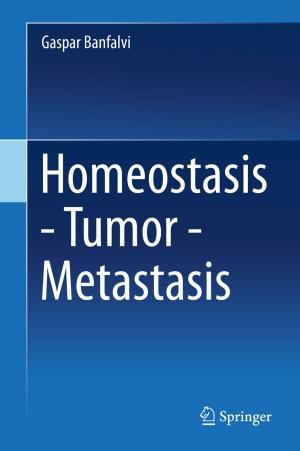Pharmacological Control of Calcium and Potassium Homeostasis
Biological, Therapeutical, and Clinical Aspects
Nonfiction, Health & Well Being, Medical, Medical Science, Pharmacology, Specialties, Internal Medicine, Cardiology| Author: | ISBN: | 9789401101172 | |
| Publisher: | Springer Netherlands | Publication: | December 6, 2012 |
| Imprint: | Springer | Language: | English |
| Author: | |
| ISBN: | 9789401101172 |
| Publisher: | Springer Netherlands |
| Publication: | December 6, 2012 |
| Imprint: | Springer |
| Language: | English |
As the number of drugs acting on calcium and potassium channels grows, there is a need for a continuous reappraisal of the cellular machinery controlling them. The present volume provides an update on the basic knowledge, the molecular targets of the two channels, and the importance the drugs that bind them have as pharmacological tools and therapeutic agents. This work was presented at the 6th International Symposium on PHARMACOLOGICAL CONTROL OF CALCIUM AND POTASSIUM HOMEOSTASIS: BIOLOGICAL, THERAPEUTICAL, AND CLINICAL ASPECTS, in Florence (Italy) on October 4-6, 1994. Because of the recent advances in the field, discussions on potassium channels were included for the first time. At least six classes of voltage-dependent calcium channels have been defined based on their physiological and pharmacological properties. Among them, L-type channels, mediating long lasting currents, are better characterized. Calcium homeostasis within the cell is not only regulated by calcium channels; intracellular calcium stores, in particular a pool contained in the lumen of specialized areas of the endoplasmic reticulum, are rapidly exchanged with the cytoplasm and playa key role in the control of calcium homeostasis. This area, however, has not yet been exploited from a therapeutic point of view. Potassium channels are present in virtually every cell type, excitable and nonexcitable, and are distinguished by structural, biophysical, and pharmacological criteria. Different classes including voltage-gated, ligand-gated, AP-sensitive, and G-protein coupled among others, have been defined by their primary regulatory and gating mechanisms.
As the number of drugs acting on calcium and potassium channels grows, there is a need for a continuous reappraisal of the cellular machinery controlling them. The present volume provides an update on the basic knowledge, the molecular targets of the two channels, and the importance the drugs that bind them have as pharmacological tools and therapeutic agents. This work was presented at the 6th International Symposium on PHARMACOLOGICAL CONTROL OF CALCIUM AND POTASSIUM HOMEOSTASIS: BIOLOGICAL, THERAPEUTICAL, AND CLINICAL ASPECTS, in Florence (Italy) on October 4-6, 1994. Because of the recent advances in the field, discussions on potassium channels were included for the first time. At least six classes of voltage-dependent calcium channels have been defined based on their physiological and pharmacological properties. Among them, L-type channels, mediating long lasting currents, are better characterized. Calcium homeostasis within the cell is not only regulated by calcium channels; intracellular calcium stores, in particular a pool contained in the lumen of specialized areas of the endoplasmic reticulum, are rapidly exchanged with the cytoplasm and playa key role in the control of calcium homeostasis. This area, however, has not yet been exploited from a therapeutic point of view. Potassium channels are present in virtually every cell type, excitable and nonexcitable, and are distinguished by structural, biophysical, and pharmacological criteria. Different classes including voltage-gated, ligand-gated, AP-sensitive, and G-protein coupled among others, have been defined by their primary regulatory and gating mechanisms.















